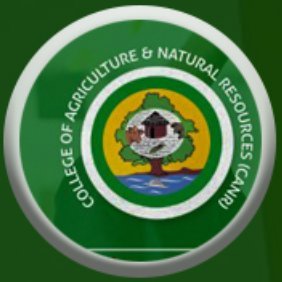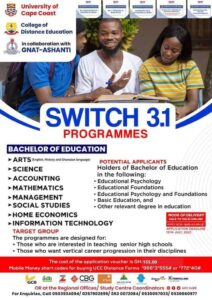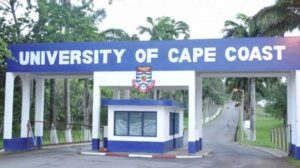Knust College of agriculture requirements

Undergraduate Programs
i. Candidates with the Senior Secondary School Certificate must in addition to passes in the three core subjects (English Language, Mathematics, and Integrated Science), obtain passes in Chemistry, Physics or Mathematics, and Biology or General Agriculture.
ii. GCE candidates must have five credits at the Ordinary Level examination or equivalent including English Language, Mathematics, and either (i) Physics, Chemistry, and Biology or Agricultural Science or (ii) General Science, Additional General Science, and any other subject. In addition, candidates should obtain three passes at the GCE Advanced Level or equivalent in Chemistry, Physics or Mathematics, and Biology or Agricultural Science.
iii. Candidates with the relevant Diploma from KNUST, University of Ghana (UG), or its equivalent from a recognized University must have a Cumulative Weighted Average (CWA) of 60 (KNUST Diplomats) and a B+ average (UG Diplomats). Short-listed candidates may be interviewed before admission.
Masters Programs
At the time of application, applicants should possess a Bachelor’s Degree or its equivalent from a recognized Institution in the relevant field of study. Preference will be given to applicants with a FIRST CLASS, SECOND CLASS (UPPER OR LOWER DIVISION)
Ph.D. Programs
Candidates applying for a Doctor of Philosophy degree must have a Master’s degree or its equivalent from a recognized Institution and shall submit evidence of adequate training and ability to undertake the proposed program.
College of Agriculture Graduate courses
Graduates could be employed in Government Institutions and Agencies like the Ministries of Agriculture, Environment, Mining, Lands and Natural Resources, Local Governments, Metropolitan, Municipal, and District Assemblies, Agencies under the Forestry Commission, Timber Industries, Research Institutes in Ghana, and other countries, Non-Governmental Organizations and Mining Companies.
The products can also work with international agencies like the UNDP, UNESCO, UNEP, USAID, JICA, GTZ, etc.
In addition, graduates are equipped with the requisite knowledge and entrepreneurial skills that make them self-employable in several natural resource-based livelihood activities like bee-keeping, mushroom farming, grasscutter, snail rearing, and intensive dry season vegetable gardening.
The following links provide a variety of undergraduate courses offered by the Faculties under the College.
Faculty of Agriculture
Faculty of Forest Resources Technology
Faculty of Renewable Natural Resources




